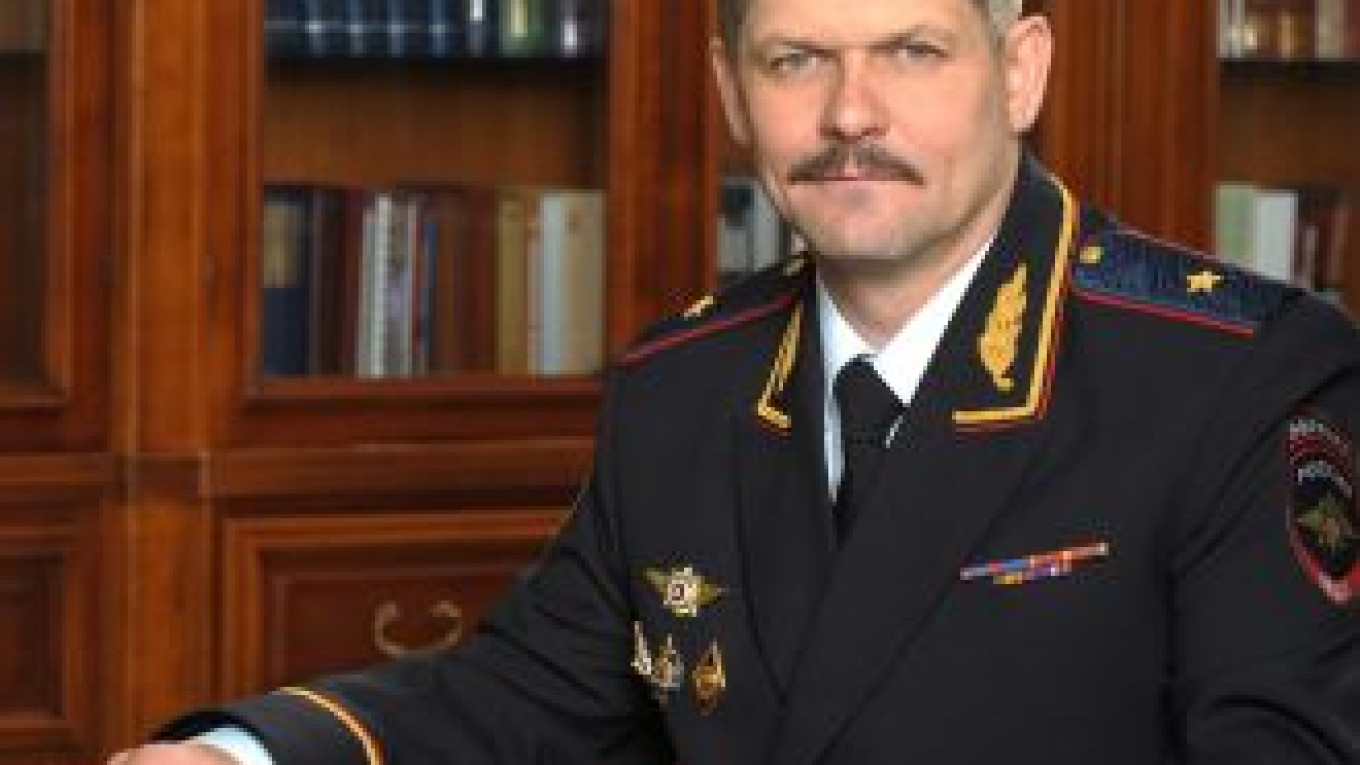Moscow's police chief suggested Tuesday that anti-Kremlin protesters had contributed to a slight increase in crime this year but said the overall situation remained stable.
Anatoly Yakunin, who took the reins in May after his predecessor was named interior minister, said police have registered 149,000 crimes since the beginning of the year, an increase of 2.7 percent over the same period in 2011. The police have solved 40,400 cases.
"In general, the crime situation in the capital has stayed at about the same level," Yakunin told reporters, according to Interfax.
A surge in public rallies in connection with disputed State Duma elections last December and Vladimir Putin's return to the Kremlin in May has been accompanied by an increase in crimes committed in public places, Yakunin said, without elaborating.
He noted a minor decline in murders, from 409 last year to 369, while statistics for other crime categories had been virtually unchanged.
Foreigners, predominantly migrant workers, many of whom are in Russia illegally, were responsible for 48 percent of all crime, including 70 percent of murders, Yakunin said. He appeared to be referring to visitors from other former Soviet republics and southeast Asia, not Europe and North America.
Yakunin said the police were working closely with immigration authorities and have registered an 80 percent increase in immigration violations compared with the same period in 2011. During that time, police detained about 17,000 people for violating immigration rules, almost 1,000 of whom were deported, he said.
He also welcomed the idea of banning repeat offenders from Russia and tougher punishments for those involved in human trafficking.
Addressing the problem of corruption within police ranks, Yakunin pledged to fight it "in all directions" and to place traffic police officers under constant scrutiny.
Announcing the appointment of Gennady Kuznetsov as Moscow police's new chief of internal affairs, Yakunin said "the unavoidability of punishment" should affect every corrupt police officer.
Related articles:
A Message from The Moscow Times:
Dear readers,
We are facing unprecedented challenges. Russia's Prosecutor General's Office has designated The Moscow Times as an "undesirable" organization, criminalizing our work and putting our staff at risk of prosecution. This follows our earlier unjust labeling as a "foreign agent."
These actions are direct attempts to silence independent journalism in Russia. The authorities claim our work "discredits the decisions of the Russian leadership." We see things differently: we strive to provide accurate, unbiased reporting on Russia.
We, the journalists of The Moscow Times, refuse to be silenced. But to continue our work, we need your help.
Your support, no matter how small, makes a world of difference. If you can, please support us monthly starting from just $2. It's quick to set up, and every contribution makes a significant impact.
By supporting The Moscow Times, you're defending open, independent journalism in the face of repression. Thank you for standing with us.
Remind me later.


